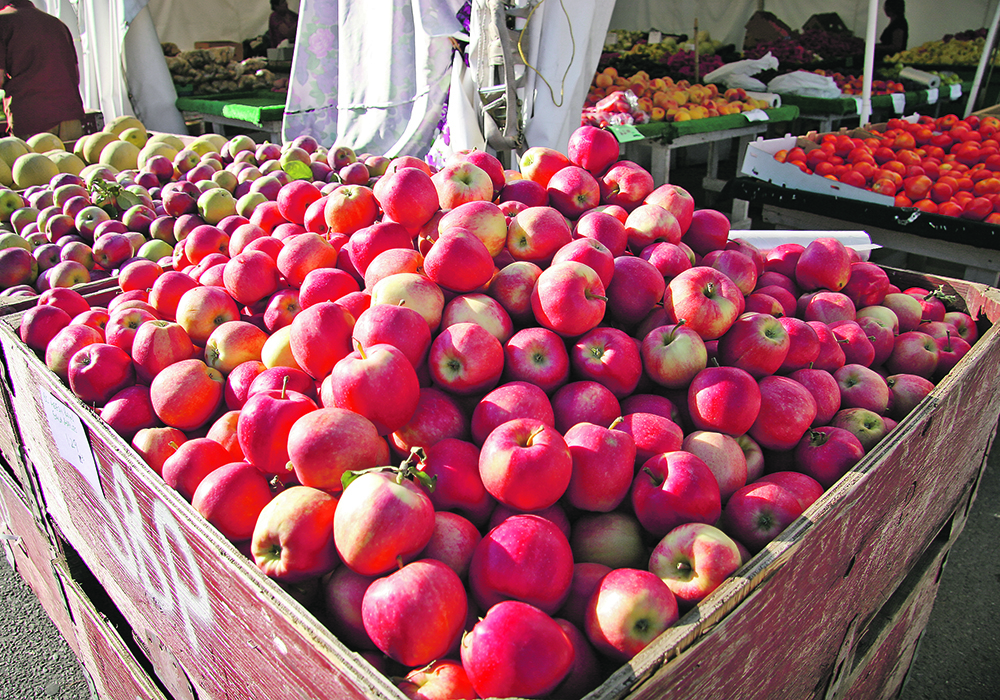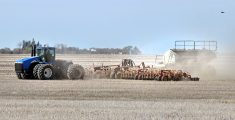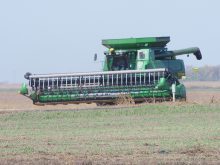Producers say industry’s future depends on adopting production methods that recognize new environmental conditions
British Columbia fruit growers are looking at a recovery year following 12 months of floods, fire and financial challenges sparked by rising input costs.
But while inflation is ballooning costs, it’s the environmental issues that are front of mind for growers for the future sustainability of the industry, said Warren Sarafinchan, chief executive officer of the 85-year-old B.C. Tree Fruits co-operative.
“The heat dome last year was an indication of the fact climate change is very real and it has consequences,” he said.
“We saw challenges with flooding and washing out roads to the ports impacting export programs.”
Read Also

Canadian Food Inspection Agency red tape changes a first step: agriculture
Farm groups say they’re happy to see action on Canada’s federal regulatory red tape, but there’s still a lot of streamlining left to be done
Dealing with the issue starts at ensuring sustainable practices.
“As we look at the investments we’re making as an organization, sustainability is absolutely a part of that decision and we’re going to continue to do our part to make sure we’re working well within the communities and the broader community of the world in which we operate.”
During the 2021 heat wave, one orchard Sarafinchan visited reached temperatures above 50 C, “and his cherry crop looked like a blow torch had gone through it.”
Recognizing that these types of environmental conditions are tied to climate change and trying to adopt production methods to combat it is something that is imperative to the future of the industry.
Sarafinchan said last year’s apple crop managed the issues well but other fruit crops are likely experiencing lingering effects from last year’s blast of record-setting heat that descended on the B.C. Interior.
Cherries and apples represent B.C. Tree Fruits’ two biggest commodities.
The cherry crop is smaller this year in the Interior and in Washington state. That may also be the case for apples, which are normally harvested in late August through October.
“We’re in the early days of the season right now and the quality looks good but if we look at apples, I’d say the consistent message is right now we’re seeing good quality, good development of the fruit so far,” Sarafinchan said, adding that local conditions are variable.
But like cereals, pulses and specialty crops on the Prairies, fruit growers face rising inflation, which is driving up operational costs.
“I’ve talked to some growers who have seen cost increases by 20, 30 and even as high as 40 percent. When you add on the higher cost of labour, the higher inflationary costs of everyday items like fuel, this is by far the most expensive crop we have planted,” Sarafinchan said.
There has been some positive movement on the price growers are receiving for their product. B.C. Tree Fruits launched an apple income assurance program in 2020 to guarantee returns on the products that meet quality thresholds. That program is being extended and expanded for another three years.
“This will give growers that certainty that the crops that they plant, assuming they produce a certain quality of fruit, their returns are guaranteed,” Sarafinchan said. “No one in the industry has a program of this type and we recognize the significant challenges that the growers are facing right now and we’re standing side-by-side them through this difficult period.”
On the labour side, he said the development of a match-making program to link growers with branch hands has proven successful.
“Within three months, the (B.C. agriculture) ministry and the industry generally had this up and running.
Sarafinchan said aside from inflationary pressures, logistics bottlenecks continue, as do geo-political instability and rising interest rates.
B.C. Tree Fruits wants to get into the international export market more, specifically in Asia.
“They can be lucrative markets for Canadian growers,” Sarafinchan said. “The good news is the demand is certainly very strong and we need growers to have the money to invest in crops and the certainty that money is going to be there and there is going to be a return on their investment.”
















